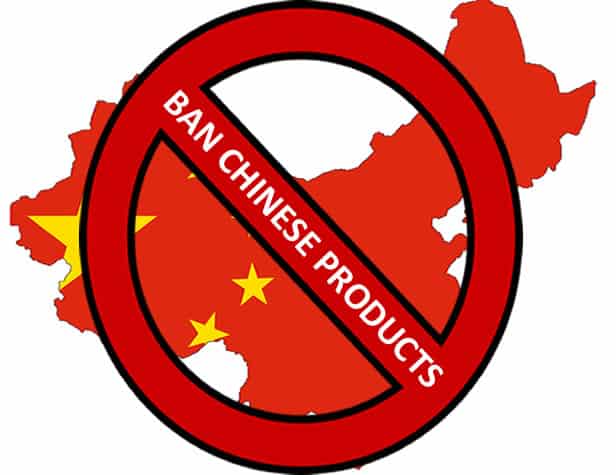Can India shun Chinese products?

Last updated on February 14th, 2023 at 11:21 am
The Chinese tilt in Indian markets and convoluted supply chains of which the Chinese are the mainstay can spell difficulty in implementing the call to boycott China.
The border clashes in Ladakh’s Galwan Valley, which left 20 Indian army personnel dead, has been met which anger in the rest of the country and the knee-jerk reaction has been the call to ‘boycott Chinese goods’. The Confederation of All India Traders (CAIT), a group of 70 million brick-and-mortar retailers, has said they would not purchase Chinese goods and so has the RSS-affiliated Swadeshi Jagran Manch. But the stark realities of trade between the two countries makes it difficult to heed this call.
Currently, India imports almost five times as much as it exports to China in terms of value. China’s share in Indian exports is 5% but its share in imports is almost 14%. China not only exports to India finished products that are several magnitudes cheaper than what is available elsewhere but also components and intermediate products that are used to manufacture finished goods. Blindly banning these imports from China without identifying alternate suppliers would only hurt Indian manufacturers. Besides even the products India imports from other countries are bound to have Chinese components, so the distinction between Chinese imports and others will be increasingly difficult to make.
CAIT is confident of replacing at least 3,000 Chinese-made products with those made in India in the short term. By December 2021, they hope to cut the imports from China by 20-25%. They expect a combination of ‘Vocal for Local’ push as part of the PM’s Aatmanirbar Bharat programme and the prevailing anti-China sentiment to ensure the success of this campaign.
Read: India China border tension May slow down Domestic manufacturing
They are recommending that their members display Chinese products separately so that the consumer is given the choice. But it remains to be seen for how long the price-conscious Indian consumer will be governed by his anti-Chinese sentiment into spending more for the same product. Some of India’s major imports are smartphones, solar panels, medical equipment, auto components and raw materials for fertilisers. Apart from this, Chinese venture capital firms have a big footprint among Indian startups, with 18 out of 30 Indian unicorns funded by the Chinese. And these are just the tip of the iceberg. As impassioned as the response to boycott China is, Indian markets are way too intertwined with the Chinese ones for this to work. And perhaps that is a good thing and just what is needed for the de-escalation of hostilities.



